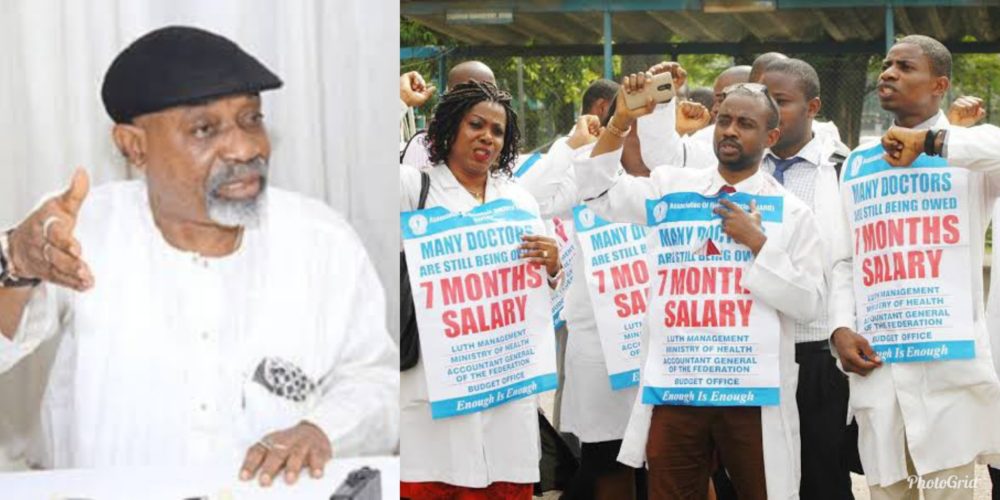By Asmau Ahmad
The Nigeria’s Federal Government said that it was unlikely to meet the recommendation of the United Nations and the World Health Organisation (WHO)’s ratio of one doctor to 600 patients.
The Minister of Labour and Employment, Dr Chris Ngige, said this at the two-day quarterly meeting of the Nigeria Health Commissioners Forum in Abuja.
The two-day Forum’s theme with a theme: “Building a stronger health sector in Nigeria through collaboration and strategic partnership,” said the meeting was primarily convened to discuss how to strengthen the health system at the sub-national levels, with an overall objective of achieving Universal Health Coverage (UHC).
He said: “We are not a United Nations’ country; we are a developing country. So, when such figures are given, I will tell them every rule has an exception. We are not yet there.
“So, we shall make do with what we have. And when they’re saying he said yes. Surplus doctors. We have surpluses I keep on telling them that we have not deployed our medical manpower proportionately, and adequately as we should do.”
“How many doctors do we have in the rural areas and in the suburbs since everybody is in the townships, with a medical and dental council data showing 4,000 doctors every year. Before, it used to be 3000, before the private universities came a lot of them are not doing medicine, including Afe Babalola and others.”
“We are now in about 4000 plus, the people even trained abroad are coming back from Russia and Ukraine, and the rest of them all Medical and Dental Council of Nigeria (MDCN), is registering them.”
“So, almost everybody has come to Abuja, Lagos and Port Harcourt to stay. And we have 10,000 primary care centres that are unmanned as at the last count.”
The Lagos State Commissioner for Health, Prof. Akin Abayomi, called on state’s governors to create an enabling environment for physicians in their states.
Abayomi said that there were more than 20,000 Nigerian born physicians outside the country doing extremely well.
“This is why our governors should create an enabling environment for our physicians. By now, Nigeria should not be talking about brain drain rather, it should be talking about bringing back our physicians to the country,” he stressed.
Speaking on how the state was responding to COVID-19 pandemic, he noted that Lagos state used the experience it had acquired in 2015, when it responded to the Ebola outbreak.
“This experience has helped us to effectively control the spread of the virus in the state despite, our huge population.
“We had robust data collection supporting our policy decision making. We built a system of data collection, analysis and interpretation along the lines of each pillar of the Emergency Operations Centre (EOC).
We then invested in technology to automate our data collection system through the information and implementation of the Lagos State Emergency Response System (LASERS), which allowed us to get data in real time for our response.


